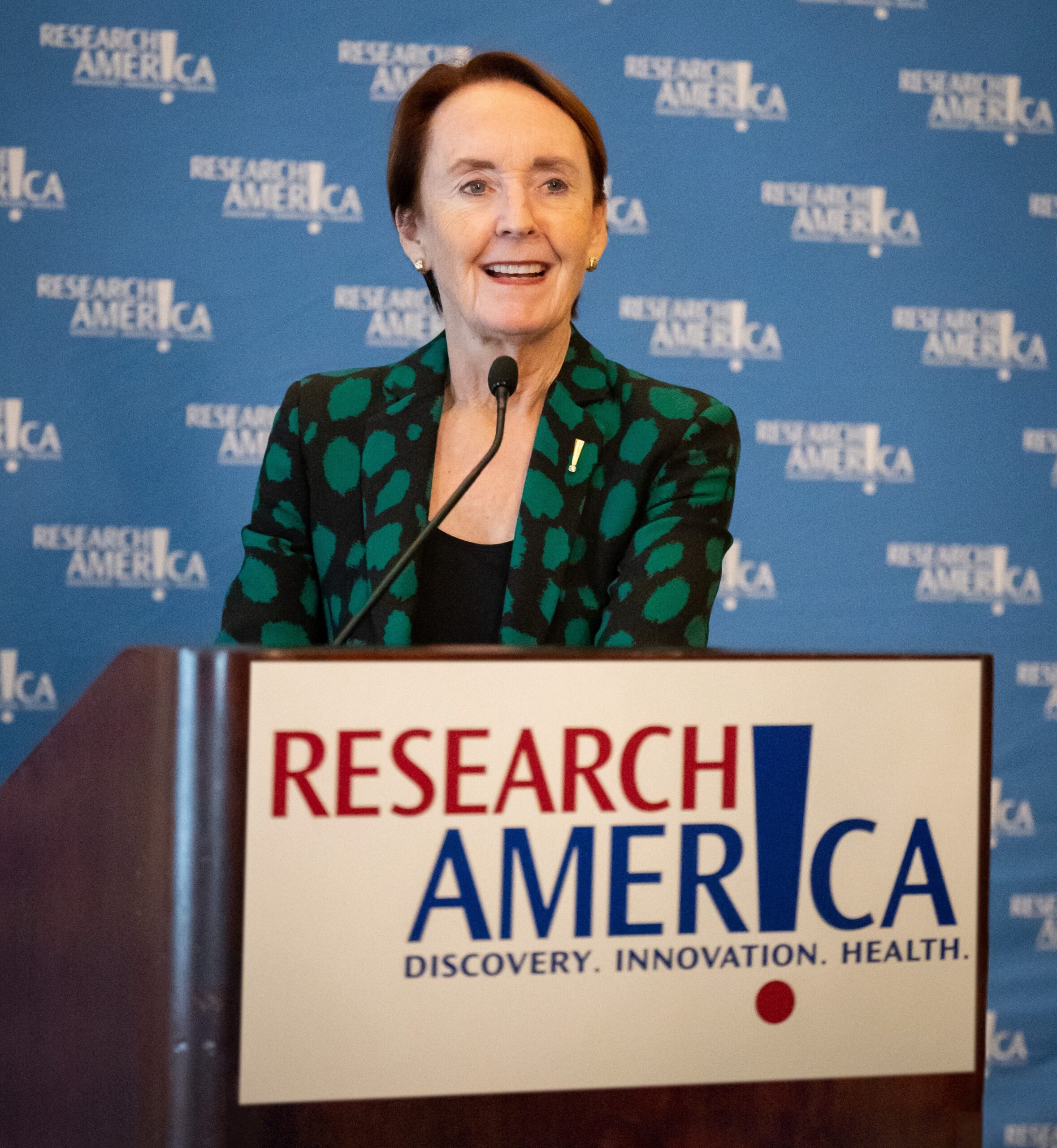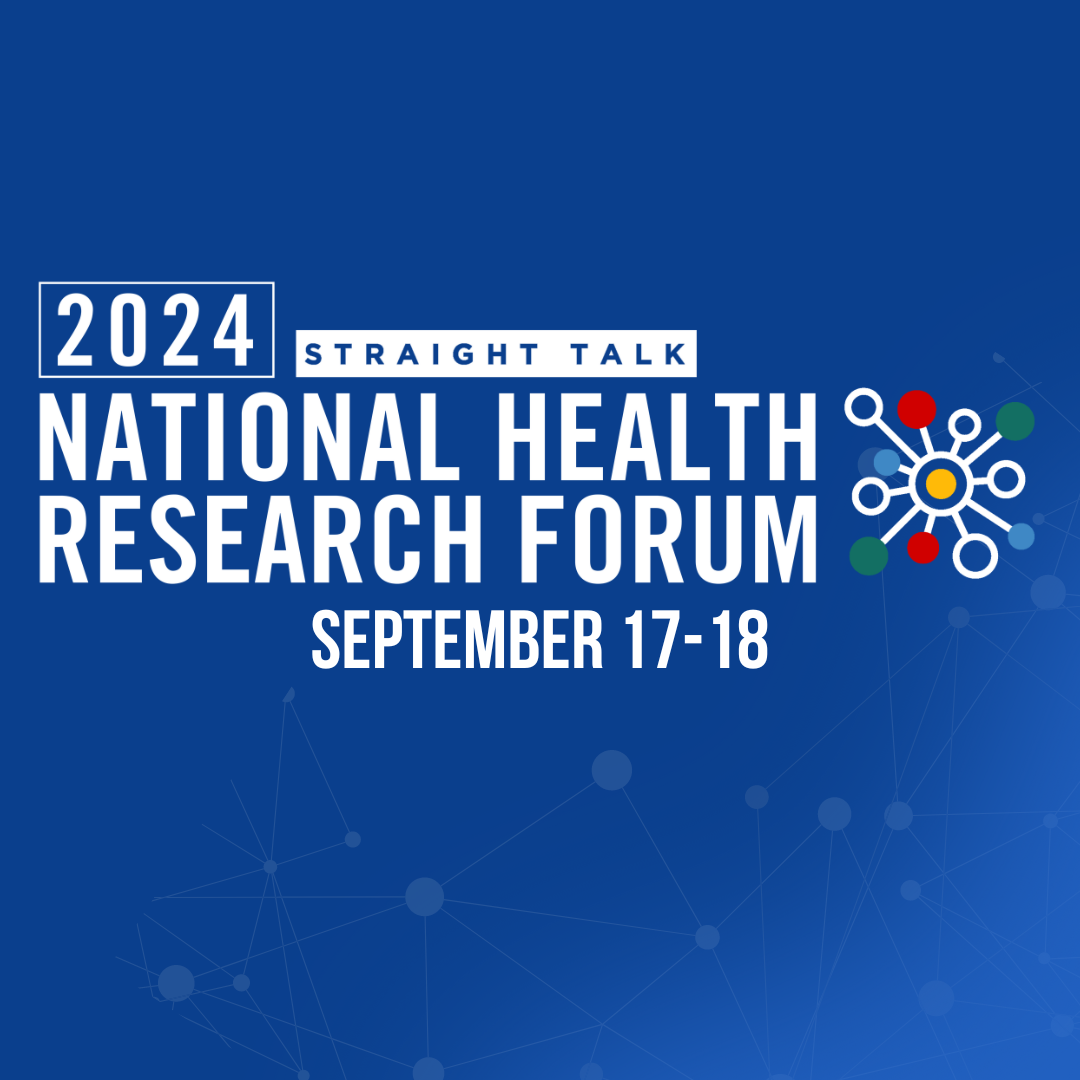Make Your Voice Heard

Even with Congress in recess, our advocacy efforts remain full steam ahead! If you haven’t yet signed our thank you letter for the bipartisan Senate Appropriations Committee effort to boost NIH funding by approximately $2 billion in FY25, there’s still time to add your voice. Sign the letter here.
Tomorrow is the deadline to submit your organization’s comments to the House Energy and Commerce Committee in response to the NIH Reform Framework for Discussion that Rep. Cathy McMorris Rodgers (R-WA) released earlier this summer (and which House Labor-HHS Appropriations Subcommittee Chair Robert Aderholt incorporated into the House Labor-HHS Appropriations bill). See our comments here.
Our own Ellie Dehoney, Senior Vice President of Policy and Advocacy, was quoted in Roll Call this morning about the complex dynamics underlying calls for NIH reform. We have focused our energy (and our comments) on ensuring that if a major NIH reform effort comes to fruition, it takes place on a bipartisan, bicameral basis and centers on a transparent, multi-stakeholder process.
Congress has NIH authorization, oversight, and funding responsibility, and our community has a crucial role to play in helping to shape any changes that bear on the pace and reach of scientific, medical, and public health progress. But that is not enough. We also need to foster awareness and broad-based congressional support of NIH. To that end, we’ve updated our NIH Fast Facts resource and also recommend Act for NIH’s “What’s At Stake” webpage as a terrific example of compelling advocacy messaging. Check out our Advocacy Resources page for easy ways to use these tools to connect with your representatives in Congress. We can do this!
CHIPS at 2: Aug. 9th marked the two-year anniversary of the signing of the CHIPS and Science Act, the bipartisan legislation meant to drive science and technology innovation in the U.S. The passage of this bill was a great accomplishment, but Congress has not funded the bill as authorized. Here is the statement put out by the Science and Technology Action Committee that I co-chair. We ask that lawmakers on both sides of the aisle fully fund this legislation so that it can live up to its potential.
Improving Diversity in Clinical Trials: The FDA is soliciting input on its draft guidance on Diversity Action Plans (DAPs) for clinical trials, mandated in 2022 legislation. The DAPs require that clinical trials for drugs, biologics, and high-risk devices include specific diversity plans incorporating statistics on race, ethnicity, sex, and age to ensure that trial demographics reflect those of the overall population. The goal is to enhance research equity and outcomes. You can read more and submit comments through the Federal Register by Sept. 26.

National Health Research Forum: Speaking of clinical trials, a special clinical trials discussion will be featured on day one of our upcoming 2024 National Health Research Forum on Sept. 17 and 18. In addition to the clinical trials discussion, join us for discussions with top federal officials, research leaders, and media on timely topics such as climate change’s impact on health, artificial intelligence (AI) and drug development, nutrition and health, and navigating comorbidities in mental health. The Sept. 17 sessions will be virtual, while the Sept. 18 discussions will be in person on the campus of The George Washington University (GWU), followed by a reception at GWU. It’s free and open to all, but space is limited, so register here for the virtual day, and register here for the in-person day.
Youth Mental Health: We recently discussed the glimmer of good news coming out of CDC’s Youth Risk Behavior Survey that showed a dip of 4 percentage points in the number of high school girls reporting extreme depressive symptoms. While encouraging, the same survey found that 4 in 10 high school students experience persistent feelings of sadness or hopelessness, and 2 in 10 students seriously considered suicide. The survey shows how far we have to go in addressing youth mental health, a problem that should be tackled with more urgency, particularly as students go back to school in the coming weeks. It’s also timely to revisit a previous alliance discussion we held with Mitchell Prinstein, PhD, the chief science officer at the American Psychological Association, who shared keen insights about the impact social media is having on our youth.




